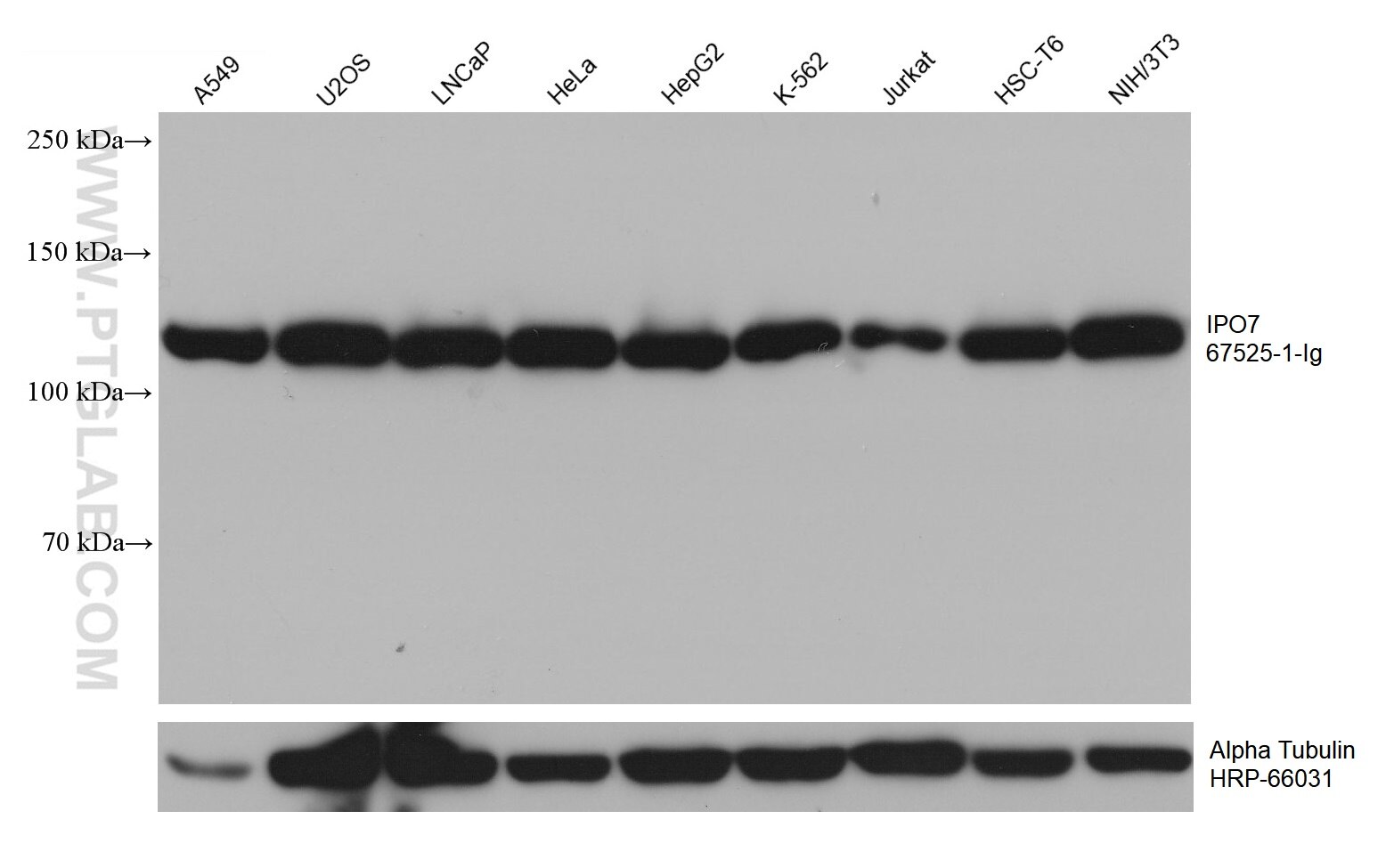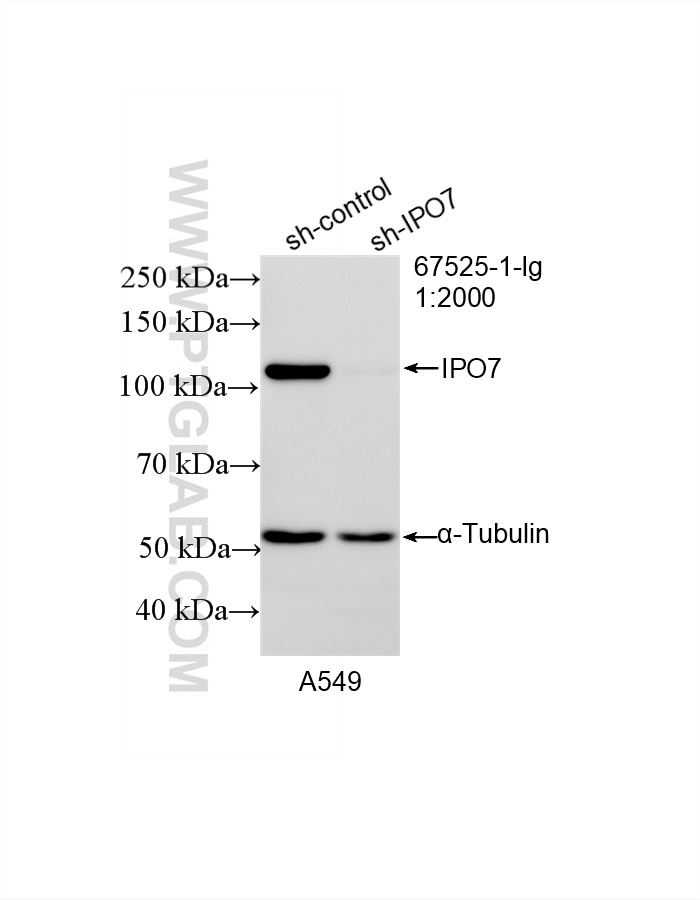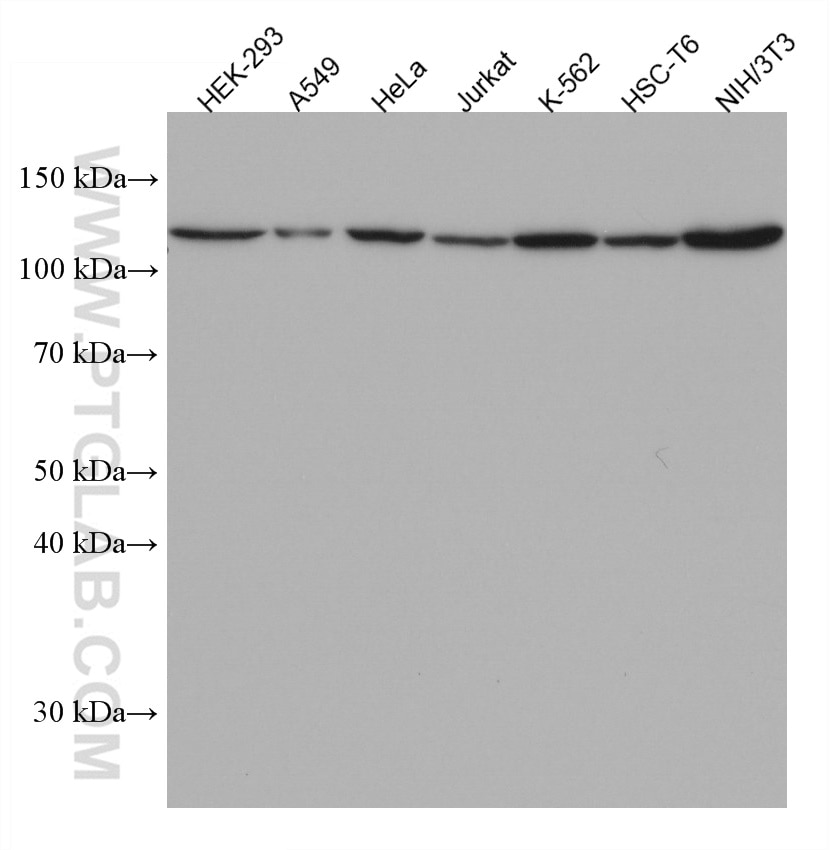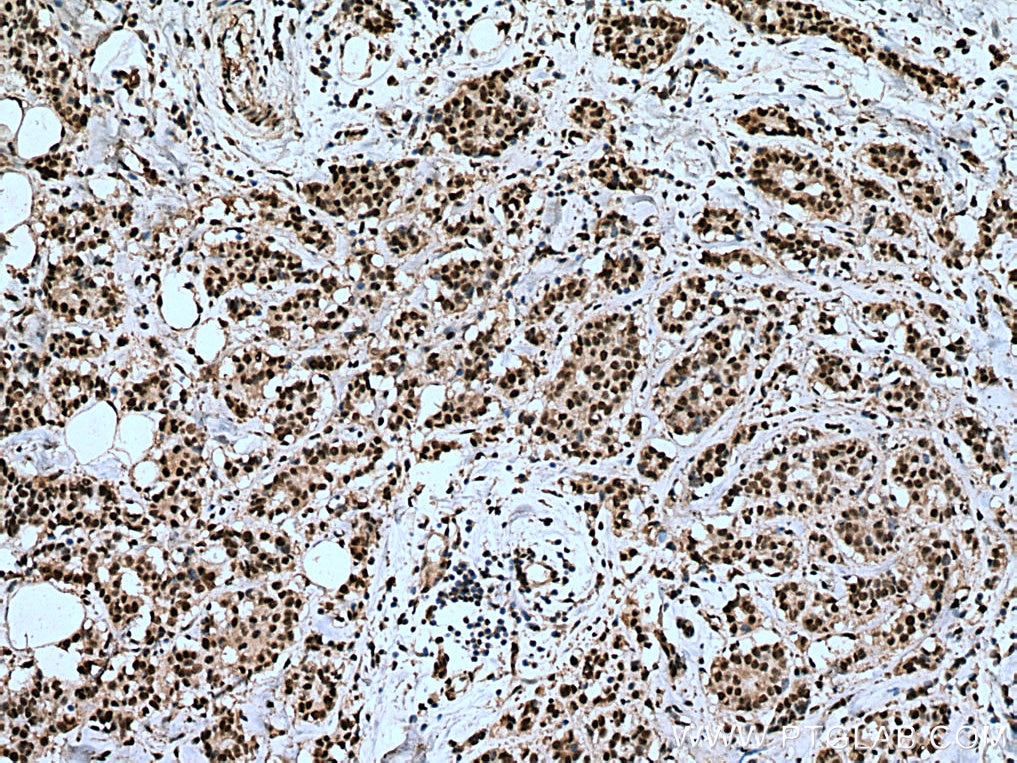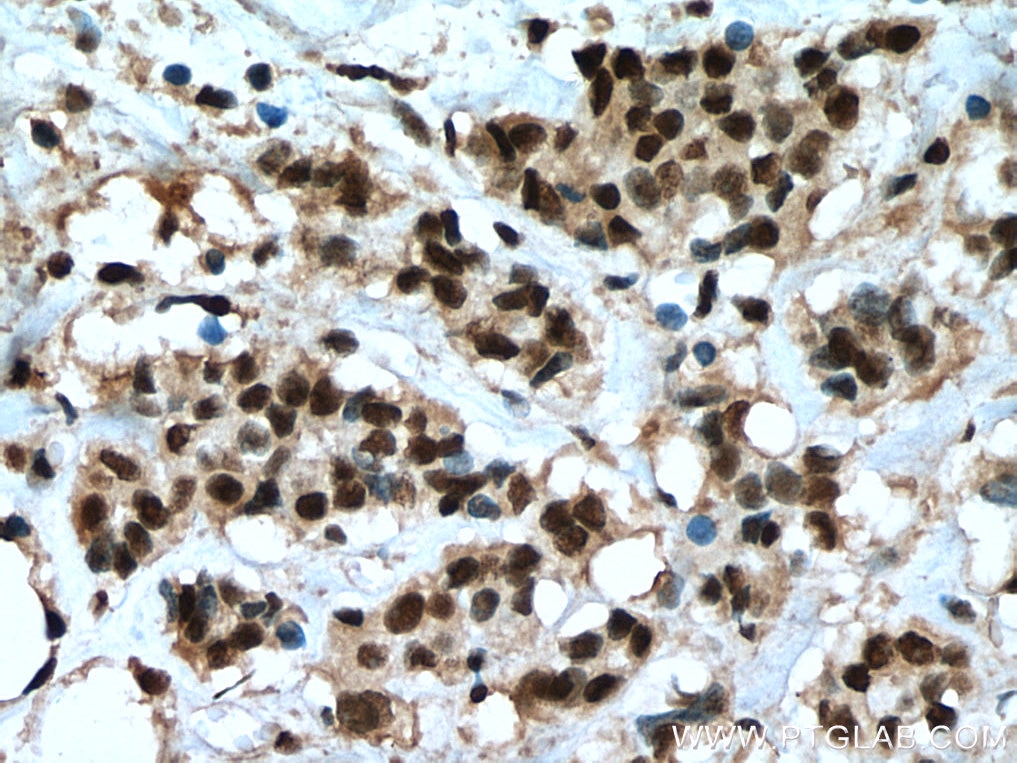Tested Applications
| Positive WB detected in | A549 cells, HEK-293 cells, U2OS cells, LNCaP cells, HeLa cells, HepG2 cells, K-562 cells, Jurkat cells, HSC-T6 cells, NIH/3T3 cells |
| Positive IHC detected in | human breast cancer tissue Note: suggested antigen retrieval with TE buffer pH 9.0; (*) Alternatively, antigen retrieval may be performed with citrate buffer pH 6.0 |
Recommended dilution
| Application | Dilution |
|---|---|
| Western Blot (WB) | WB : 1:5000-1:50000 |
| Immunohistochemistry (IHC) | IHC : 1:500-1:2000 |
| It is recommended that this reagent should be titrated in each testing system to obtain optimal results. | |
| Sample-dependent, Check data in validation data gallery. | |
Published Applications
| WB | See 1 publications below |
Product Information
67525-1-Ig targets IPO7 in WB, IHC, ELISA applications and shows reactivity with human, mouse, rat samples.
| Tested Reactivity | human, mouse, rat |
| Cited Reactivity | rat |
| Host / Isotype | Mouse / IgG1 |
| Class | Monoclonal |
| Type | Antibody |
| Immunogen |
CatNo: Ag27257 Product name: Recombinant human IPO7 protein Source: e coli.-derived, PGEX-4T Tag: GST Domain: 879-1016 aa of NM_006391.2 Sequence: MHAEHENDSDDDDEAEDDDETEELGSDEDDIDEDGQEYLEILAKQAGEDGDDEDWEEDDAEETALEGYSTIIDDEDNPVDEYQIFKAIFQTIQNRNPVWYQALTHGLNEEQRKQLQDIATLADQRRAAHESKMIEKHGG Predict reactive species |
| Full Name | importin 7 |
| Calculated Molecular Weight | 120 kDa |
| Observed Molecular Weight | 120 kDa |
| GenBank Accession Number | NM_006391.2 |
| Gene Symbol | IPO7 |
| Gene ID (NCBI) | 10527 |
| RRID | AB_2882745 |
| Conjugate | Unconjugated |
| Form | Liquid |
| Purification Method | Protein G purification |
| UNIPROT ID | O95373 |
| Storage Buffer | PBS with 0.02% sodium azide and 50% glycerol, pH 7.3. |
| Storage Conditions | Store at -20°C. Stable for one year after shipment. Aliquoting is unnecessary for -20oC storage. 20ul sizes contain 0.1% BSA. |
Protocols
| Product Specific Protocols | |
|---|---|
| IHC protocol for IPO7 antibody 67525-1-Ig | Download protocol |
| WB protocol for IPO7 antibody 67525-1-Ig | Download protocol |
| Standard Protocols | |
|---|---|
| Click here to view our Standard Protocols |

